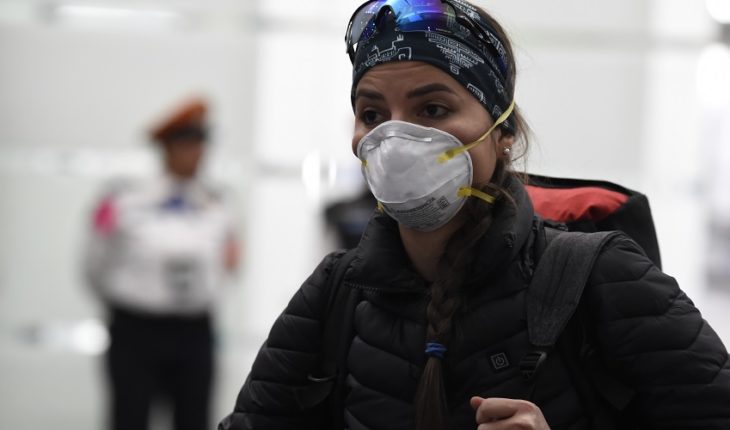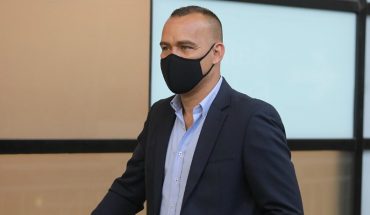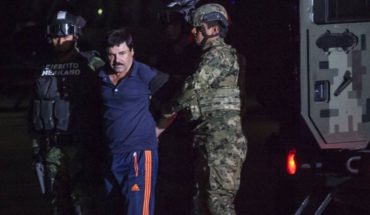Returning from his five-day trip to Europe, Cinthia began to feel his throat swollen, runny nose and headache. His return—and symptoms—coincided with confirmation of the first two cases of COVID-19 coronavirus in Mexico.
Alerted, she decided to go this Friday, February 28, to the Hospital 20 November of the Institute of Security and Social Services of State Workers (ISSSTE) in Mexico City, but did not attend to it because it was not a rightholder.
You may be interested: How COVID-19 coronavirus cases connect from Mexico and Brazil to Italy
Cinthia narrated Political Animal who traveled to Milan, Italy, on 18 February; two days later he moved to Venice and from there arrived on a flight to France.
“From France to Milan we were scanned with those guns that measure your temperature. Just 20 or 21 it was told in the news in Italy that there were 60 cases in the Lombardy area of northern Italy, which is a small town very close to Milan,” he said.
But when he returned to Mexico City in the early morning of February 26 at Benito Juarez Airport, he did not have any procedures to detect if he had the disease. “It wasn’t my turn to see any kind of protocol for the planes that arrived from Europe,” he said.
When the first symptoms appeared, he decided to go to the ISSSTE hospital.
“I went on the recommendation of several family and friends, because the symptoms I don’t have them clear, I’m a little hoarse, my throat is swollen, I have runoff and a headache.”
She approached the entrance above Félix Cuevas Avenue, where she told the watchman that she wanted to do studies because she had returned from Italy and wanted to rule out any disease, but was told she had to go to the general consultation gate on Coyoacán Avenue.
“When I got there, I explained the same thing to the police at the entrance and asked if I had my license. I said no but I had read that 4 or 5 hospitals where the test was done and this is one of those.”
Read more: Two patients in CDMX and Sinaloa test positive for coronavirus COVID-19
Cinthia was denied access to the hospital and checked by a doctor. “He told me he couldn’t let me in if he didn’t have a license, I asked him to call someone to check me out or tell me where to go and he told me i’d better go to IMSS.”
Hey, @SSaludCdMx, where can you do covid19 studies?
At the 20th Hospital, I was sent alv for not being a ?
— Brown Sugar (@cinthiallely) February 28, 2020
Political Animal contacted ISSSTE to learn more about Cinthia’s case. They reported that all personnel know of the protocol of action, that in their units only are served as the rightholders of the ISSSTE, while the non-right can go to the medical units of the Ministry of Health, after calling 800-0044-800.
In a statement, ISSSTE Director General Luis Antonio Ramírez Pineda asked not to be alarmed at the COVID-2019 cases, and urged the rightholders and the general population to follow the recommendations of the health authorities, adopt hygiene measures, hydrate, feed well and avoid kissing and hand greetings.
You may be interested: Questions about COVID-19: they serve mouthpieces, how it heals, because there is no vaccine
Cinthia suffers from rinitis, so her symptoms may not be a product of COVID-19, but as she many travelers may return from confirmed cases of this virus and will not be unaware of the protocols of action established by the Ministry of Health.
At the General Hospital, the story was no different. When calling the general switch to ask for reports on where to run a COVID-19 test, the first person to answer the phone reported another area where he said they would report “how to purchase the vaccine against the disease.”
However, the international authorities have noted that there is still no specific treatment for COVID-19, much less a vaccine.
After the call was transferred through different areas, they responded in the ER where they eventually indicated that they did not perform tests there to detect or rule out the disease, but did not indicate what should be done.
What do I do if I travel to a risky area?
If a few days ago you traveled China, Hong Kong, South Korea, Japan, Italy, Iran or Singapore and you have fever, cough, sneezing, general discomfort, headache, shortness of breath, then you should call the Epidemiological and Health Intelligence Unit (UIES) at 800-0044-800, where trained staff from the Ministry of Health will guide you.
If symptoms are referred to during the standardized clinical questionnaire, UIES staff will coordinate the patient’s review at home or transfer them to the relevant care unit by notifying the unit for reception and clinical evaluation.
Travellers should monitor their health up to two weeks after returning from one of those locations. The most important thing is to seek medical attention immediately and not self-medicate. If you have symptoms, you should avoid waving, kissing or hugging and wash the dishes, glasses and cutlery you use with water, soap and chlorine and if possible stay at home.
pic.twitter.com/6iWrWRmQLe
— HEALTH Mexico (@SSalud_mx) February 28, 2020
Although two cases of COVID-19 have already been confirmed in Mexico, one in Mexico City and one in Sinaloa, we are not all at risk. Both patients were in contact with a confirmed case during a convention in Italy.
The authorities note that symptoms could only be at risk 14 days later to be in contact with a confirmed case or under COVID-19 investigation; or if you traveled to China, Hong Kong, South Korea, Japan, Italy, Iran or Singapore, which are countries that have local community transmission of the virus.
What can we do to prevent?
To reduce the likelihood of exposure and transmission of the virus, the Ministry of Health recommends that some personal hygiene measures and the environment in which we carry out our daily activities:
Wash hands frequently with soap and water or use 70% gel alcohol-based solutions.
When coughing or sneezing, use the label sneeze, which involves covering your nose and mouth with a disposable handkerchief or the inner angle of your arm.
Don’t spit. If it is necessary, use a disposable handkerchief, put it in a plastic bag, tie it and throw it away; then wash your hands.
Do not touch your face with dirty hands, especially nose, mouth and eyes.
Clean and disinfect commonly used surfaces and objects in homes, offices, enclosed sites, transportation, meeting centers, etc., ventilate and allow sunlight to enter.
Stay at home when you have respiratory diseases and go to the doctor if any of the symptoms occur (fever greater than 38oC, headache, sore throat, runny nose, etc.).
Avoid contact with people with respiratory diseases as much as possible
What we do in Animal Político requires professional journalists, teamwork, dialogue with readers and something very important: independence. You can help us keep going. Be part of the team.
Subscribe to Animal Politician, receive benefits and support free journalism.#YoSoyAnimal



![translated from Spanish: [VIRAL] Madre e hija se hacen famosas tras volar juntas un vuelo comercial como capitana y primera oficial](https://ananoticias.com/wp-content/themes/mts_newsonline/images/nothumb-featured.png)

